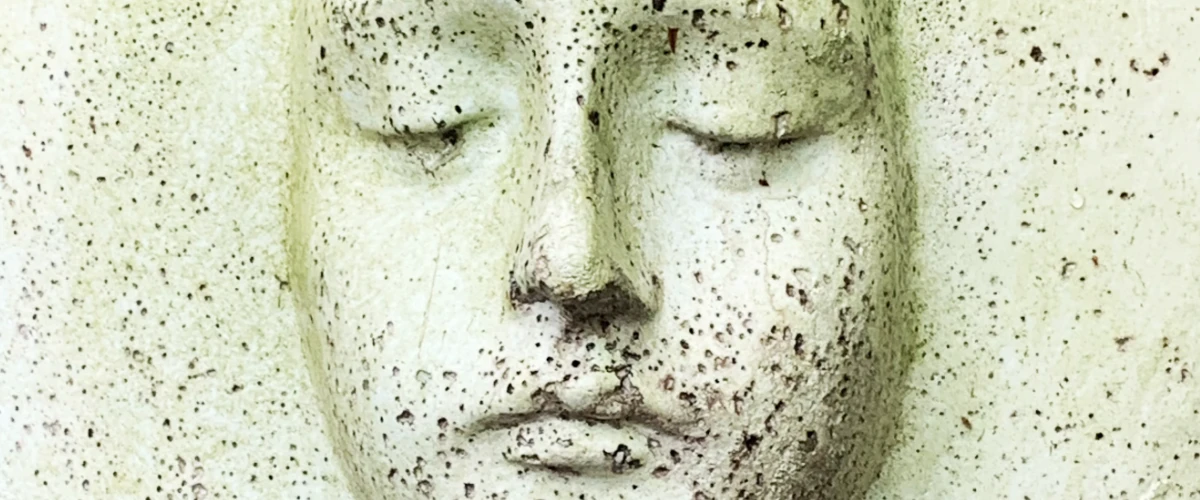Self-Paced Courses
These Foundational programs are suitable for anyone looking to get started with healing their Attachment.

This is the most foundational course for attachment repair. It introduces the Perfect Nurturers (Imaginal Parents). In the guided meditations they give the you the experience of secure attachment. When in doubt, start with this course.
This is the most foundational course for attachment repair. It introduces the Perfect Nurturers (Imaginal Parents). In the guided meditations they give the you the experience of secure attachment. When in doubt, start with this course.
-
Useful for:
- Loneliness
- Conscious Parenting

A comprehensive, in-depth, and foundational course on the specifics of Attachment Theory and the journey to Earned Secure Attachment. We introduce and practice the three primary meditations of "Attachment Repair Meditation Modality": 1) Perfect Nurturer Reinforcement Meditation (PNR), 2) the Schema Repatterning Meditation (SRM), and "Mentalizing the Modes Meditation (MMM). This course is foundational, but more in-depth and detailed than the "Experiencing Secure Attachment" course.
A comprehensive, in-depth, and foundational course on the specifics of Attachment Theory and the journey to Earned Secure Attachment. We introduce and practice the three primary meditations of "Attachment Repair Meditation Modality": 1) Perfect Nurturer Reinforcement Meditation (PNR), 2) the Schema Repatterning Meditation (SRM), and "Mentalizing the Modes Meditation (MMM). This course is foundational, but more in-depth and detailed than the "Experiencing Secure Attachment" course.
- 9 Video Lectures
- 28 Guided Meditations
-
Useful for:
- Depression
- Dating Issues
- General Anxiety
- Executive Dysfunction
Get deeper knowledge and practices to do more serious healing work.

This course is a deep dive into understanding and then healing Anxious-Preoccupied Attachment through guided visualization meditations. This course is best taken after either the Experiencing Secure Attachment or the Attachment Theory and Repair. For those with disorganized/fearful features, it's best to take the "Healing Early Developmental Attachment Trauma" first.
This course is a deep dive into understanding and then healing Anxious-Preoccupied Attachment through guided visualization meditations. This course is best taken after either the Experiencing Secure Attachment or the Attachment Theory and Repair. For those with disorganized/fearful features, it's best to take the "Healing Early Developmental Attachment Trauma" first.
-
Useful for:
- CPTSD
- Trauma
- Dating Issues
- Social Anxiety
- General Anxiety
- Abandonment Fear
- Confidence & Exploration
- Self Definition / Agency / Esteem

This is an experientially oriented self-paced course focused on healing developmental trauma (the primary cause of CPTSD and Disorganized Attachment). If you have disorganized (fearful) attachment or disorganized features start with this course. Working through fear of attachment figures is the first step towards Earned Secure Attachment. Thereafter, addressing Dissmissing-Avoidant and Anxious-Preoccupied features becomes much easier.
This is an experientially oriented self-paced course focused on healing developmental trauma (the primary cause of CPTSD and Disorganized Attachment). If you have disorganized (fearful) attachment or disorganized features start with this course. Working through fear of attachment figures is the first step towards Earned Secure Attachment. Thereafter, addressing Dissmissing-Avoidant and Anxious-Preoccupied features becomes much easier.
- 8 Video Lectures
- 10 Guided Meditations
-
Useful for:
- CPTSD
- Shame
- Trauma

Loving kindness, or metta, is one of the sublime emotions of Buddhism. Learning to cultivate it can lead to greater connection with others, more positive emotion, and greater integration.
Loving kindness, or metta, is one of the sublime emotions of Buddhism. Learning to cultivate it can lead to greater connection with others, more positive emotion, and greater integration.
-
Useful for:
- Depression
- Loneliness
- Integration and Parts
- Self Definition / Agency / Esteem
- Lack of Positive Emotion (Anhedonia)

The Detached Protector Mode describes habitual detachment and suppresion of emotions. This course aims to help anyone experiencing dissociation and numbness to reconnect with themselves.
The Detached Protector Mode describes habitual detachment and suppresion of emotions. This course aims to help anyone experiencing dissociation and numbness to reconnect with themselves.

A meditative journey through early childhood separation experiences, their impact, and how they can be resolved.
A meditative journey through early childhood separation experiences, their impact, and how they can be resolved.
-
Useful for:
- Loneliness
- Abandonment Fear
- Self Definition / Agency / Esteem

This self-paced meditation course focuses on healing attachment bycultivating loving-kindness, compassion, and sympathetic joy first in formal meditation and then bringing those positive mind-states to your everyday life.
This self-paced meditation course focuses on healing attachment by cultivating loving-kindness, compassion, and sympathetic joy first in formal meditation and then bringing those positive mind-states to your everyday life.
-
Useful for:
- Depression
- Dating Issues
- Conscious Parenting
- Lack of Positive Emotion (Anhedonia)

A mini-course focused on healing internal splits, leading to greater integration and peace.
A mini-course focused on healing internal splits, leading to greater integration and peace.
-
Useful for:
- Forgiveness
- Integration and Parts
- Addiction / Substance Abuse

A mini-course to address work through loneliness using attachment repair visualization meditation.
A mini-course to work through loneliness or isolation through the lens of attachment repair.
-
Useful for:
- Shame
- Loneliness
- Social Anxiety
- Abandonment Fear
- Self Definition / Agency / Esteem

Wisdom and Heart-Focused Meditation Practices for Better Interpersonal Relationships, Emotional Regulation, & Goal Directed Behavior
Wisdom and Heart-Focused Meditation Practices for Better Interpersonal Relationships, Emotional Regulation, & Goal Directed Behavior
-
Useful for:
- Metacognition
- General Anxiety
- Executive Dysfunction
- Integration and Parts
- Addiction / Substance Abuse

In this course we will cultivate the "Healthy Adult". This implies 1) developing the capacity to be a secure attachment figure for others, 2) to develop better self definition, 3) self agency, and 4) self esteem.
This course is for those who have already worked through the basic attachment repair courses or who come to this work already secure attachment established. Said differently, this course facilitates positive development beyond basic secure attachment.
In this course we will cultivate the "Healthy Adult". This implies 1) developing the capacity to be a secure attachment figure for others, 2) to develop better self definition, 3) self agency, and 4) self esteem.
This course is for those who have already worked through the basic attachment repair courses or who come to this work already secure attachment established. Said differently, this course facilitates positive development beyond basic secure attachment.
-
Useful for:
- Metacognition
- Dating Issues
- Confidence & Exploration
- Self Definition / Agency / Esteem

This Self-Paced Course is focused on repairing early attachment conditioning through a series of guided meditations along with relevant psycho-education on Schema Therapy.
This Self-Paced Course is focused on repairing early attachment conditioning through a series of guided meditations along with relevant psycho-education on Schema Therapy.
- 9 Video Lectures
- 8 Guided Meditations
-
Useful for:
- Shame
- CPTSD
- Trauma
- Abandonment Fear

The purpose of this Self-Paced Course is to heal early attachment wounds and develop healthier relationships by using meditation practices to cultivate the healing qualities of compassion.
The purpose of this Self-Paced Course is to heal early attachment wounds and develop healthier relationships by using meditation practices to cultivate the healing qualities of compassion.
- 5 Video Lectures
- 16 Guided Meditations
-
Useful for:
- Shame
- CPTSD
- Trauma
- Abandonment Fear

This course consists of guided meditations drawing on Bruce Ecker’s Coherence Therapy to help you discover and transform limiting beliefs.
This course consists of guided meditations drawing on Bruce Ecker’s Coherence Therapy to help you discover and transform limiting beliefs.
- 5 Guided Meditations
-
Useful for:
- Trauma
- Metacognition
- Integration and Parts

In this course we work on the avoidance, overcompensation and surrender modes of Schema Therapy. We take the view (pro-symptom position) of our Modes (drawing from Coherence Therapy) thereby we see how our problematic behaviours are unintended and natural consequences of unconsciously held beliefs, usually rooted in early childhood (the Schemas).
We end each meditation with an emotionally-corrective experience that moves us towards doing emotional memory reconsolidation on the underlying schema.
An Experiential Guided Meditation Course for Healing the Modes and Their Underlying Root Schemas.
-
Useful for:
- CPTSD
- Dating Issues
- Metacognition
- Social Anxiety
- General Anxiety
- Integration and Parts
- Addiction / Substance Abuse
- Obsessive-Compulsive Disorder

This program is a series of guided chairwork meditations for giving voice to our disowned parts and integrating them.
This program is a series of guided chairwork meditations for giving voice to our disowned parts and integrating them.
-
Useful for:
- Co-dependency
- Social Anxiety
- Integration and Parts
- Addiction / Substance Abuse

This Self-Paced Course draws on the core concepts of Schema Therapy and adapts them to guided meditations such to work through and meet these core needs.
This Self-Paced Course draws on the core concepts of Schema Therapy and adapts them to guided meditations such to work through and meet these core needs.
- 13 Guided Meditations
-
Useful for:
- Shame
- Loneliness
- Abandonment Fear
- Integration and Parts
Courses tailored for more specific issues.

Anger, at its core, is a communication to others that your needs are not being met.
Anger, at its core, is a communication to others that your needs are not being met.
-
Useful for:
- Metacognition
- Executive Dysfunction
- Integration and Parts

In this conscious parenting course we use guided meditations that focus on turning ourselves into the best parent we can be to our children in a way to produce secure attachment in them. This is not principally a psycho-education course rather a course focused on doing the experiential work to help us embody the factors that create secure attachment in our children.
In this conscious parenting course we use guided meditations that focus on turning ourselves into the best parent we can be to our children in a way to produce secure attachment in them. This is not principally a psycho-education course rather a course focused on doing the experiential work to help us embody the factors that create secure attachment in our children.
-
Useful for:
- Conscious Parenting

This guided meditation course is informed by attachment theory and develops your capacity for play and exploration. We do this by first firming up on the 'secure base', feeling that we have the rock-solid support of the 'perfect nurturers'. And then on THAT basis developing better and better capacities for exploration and play.
This is a guided meditation course informed by attachment theory that develops your capacity for play and exploration. We do this by first firming up on the 'secure base', feeling that we have the rock-solid support of the 'perfect nurturers'. And then on THAT basis developing better and better capacities for exploration and play.
- 4 Video Lectures
- 6 Guided Meditations
-
Useful for:
- Confidence & Exploration
- Lack of Positive Emotion (Anhedonia)

This mini-course contains guided meditations to help you cultivate faith, to understand mistrust, and to discern when it is appropriate to trust or not.
This mini-course contains guided meditations to help you cultivate faith, to understand mistrust, and to discern when it is appropriate to trust or not.
-
Useful for:
- CPTSD
- Trauma

A mini-course to cultivate Sympathetic Joy for deeper connection with others.
A mini-course to cultivate Sympathetic Joy for deeper connection with others.
-
Useful for:
- Depression
- Self Definition / Agency / Esteem
- Lack of Positive Emotion (Anhedonia)

This mini-course is to help you develop better capacities for play and exploration using visualization. It is rooted in attachment therory.
This mini-course is to help you develop better capacities for play and exploration using visualization. It is rooted in attachment therory.
-
Useful for:
- Shame
- Confidence & Exploration

This brief course introduces you to using guided attachment repair meditation to heal shame.
This brief course introduces you to using guided attachment repair meditation to heal shame.
-
Useful for:
- CPTSD
- Shame
- Metacognition
- General Anxiety
- Executive Dysfunction
- Self Definition / Agency / Esteem

In this course we will use guided attachment repair meditation to first understand our inner critic, find the root causes of our inner critic, and then go back and confront those old negative experiences that imprinted negatively on us. This emotionally corrective experience will weaken our inner critic and come into greater ease and happiness in life.
In this course we will use guided attachment repair meditation to first understand our inner critic, find the root causes of our inner critic, and then go back and confront those old negative experiences that imprinted negatively on us. This emotionally corrective experience will weaken our inner critic and come into greater ease and happiness in life.
-
Useful for:
- Shame
- CPTSD
- Trauma
- Metacognition
- Executive Dysfunction
- Integration and Parts
- Addiction / Substance Abuse
- Obsessive-Compulsive Disorder

In this course we will do a guided meditation to work through unresolved grief. This meditation draws heavily from 'Chairwork' of Gestalt and Psychodrama. This work will help us move towards closure and then reorientation towards new relationships and explorations.
In this course we will do a guided meditation to work through unresolved grief. This meditation draws heavily from 'Chairwork' of Gestalt and Psychodrama. This work will help us move towards closure and then reorientation towards new relationships and explorations.
-
Useful for:
- Grief
- Loneliness
- Integration and Parts

In this self paced course we do the experiential work (guided visualization meditaiton) to 1) understand, then 2) integrate, and then 3) reconsolidate the core schemas that underpin codependency:
1. Self Sacrifice
2. Self Subjugation
3. Approval Seeking/Attention Seeking
In this self paced course we do the experiential work (guided visualization meditaiton) to 1) understand, then 2) integrate, and then 3) reconsolidate the core schemas that underpin codependency:
1. Approval Seeking/Attention Seeking
2. Self-Sacrifice
3. Self-Subjugation
-
Useful for:
- Co-dependency
- Dating Issues

In this course we will first seek to understand and then reconsolidate the beliefs and behavioral patterns which underly perfectionism, emotional inhibition, and negativity bias. We will use the Schema Repatterning Meditation to do this.
In this course we will first seek to understand and then reconsolidate the beliefs and behavioral patterns which underly perfectionism, emotional inhibition, and negativity bias. We will use the Schema Repatterning Meditation to do this.
- 7 Video Lectures
- 10 Guided Meditations
-
Useful for:
- Obsessive-Compulsive Disorder

In this course we will use guided attachment repair visualization meditations to first understand and then repattern deeply held schemas that undermine our ability to explore and go after what we want in life.
Specifically, we will work through these schemas (unconsciously held negative expectations of life):
Dependence and Incompetence Schema
Vulnerability and Harm Schema
Enmeshment and Underdeveloped Self Schema
Failure to Achieve Schema
In this course we will use guided attachment repair visualization meditations to first understand and then repattern deeply held schemas that undermine our ability to explore and go after what we want in life.
Specifically, we will work through these schemas (unconsciously held negative expectations of life):
Dependence and Incompetence Schema
Vulnerability and Harm Schema
Enmeshment and Underdeveloped Self Schema
Failure to Achieve Schema
- 7 Video Lectures
- 6 Guided Meditations
-
Useful for:
- General Anxiety
- Confidence & Exploration
- Self Definition / Agency / Esteem
Check out our newest additions to the store.

Loving kindness, or metta, is one of the sublime emotions of Buddhism. Learning to cultivate it can lead to greater connection with others, more positive emotion, and greater integration.
Loving kindness, or metta, is one of the sublime emotions of Buddhism. Learning to cultivate it can lead to greater connection with others, more positive emotion, and greater integration.
-
Useful for:
- Depression
- Loneliness
- Integration and Parts
- Self Definition / Agency / Esteem
- Lack of Positive Emotion (Anhedonia)

Anger, at its core, is a communication to others that your needs are not being met.
Anger, at its core, is a communication to others that your needs are not being met.
-
Useful for:
- Metacognition
- Executive Dysfunction
- Integration and Parts

The Detached Protector Mode describes habitual detachment and suppresion of emotions. This course aims to help anyone experiencing dissociation and numbness to reconnect with themselves.
The Detached Protector Mode describes habitual detachment and suppresion of emotions. This course aims to help anyone experiencing dissociation and numbness to reconnect with themselves.

A meditative journey through early childhood separation experiences, their impact, and how they can be resolved.
A meditative journey through early childhood separation experiences, their impact, and how they can be resolved.
-
Useful for:
- Loneliness
- Abandonment Fear
- Self Definition / Agency / Esteem
Assessments

This is the “gold standard of attachment assessments” (Brown & Elliott, 2016). For those committed to healing their attachment conditioning, this is a helpful starting benchmark to establish. The interview triggers your ‘attachment mechanism’ by asking you questions about childhood attachment situations. The responses are then coded for patterns that place you into one or a combination of attachment styles.
This is the “gold standard of attachment assessments”. For those committed to healing their attachment conditioning, this is a helpful starting benchmark to establish.

The purpose of the assessment is to understand how prevalent each of the 18 Schemas and Modes is in your personality. Completing an inventory is useful for people who are serious about improving their mental health, healing past traumas, or otherwise developing their self-knowledge.
The purpose of the assessment is to understand how prevalent each of the 18 Schemas and Modes is in your personality.